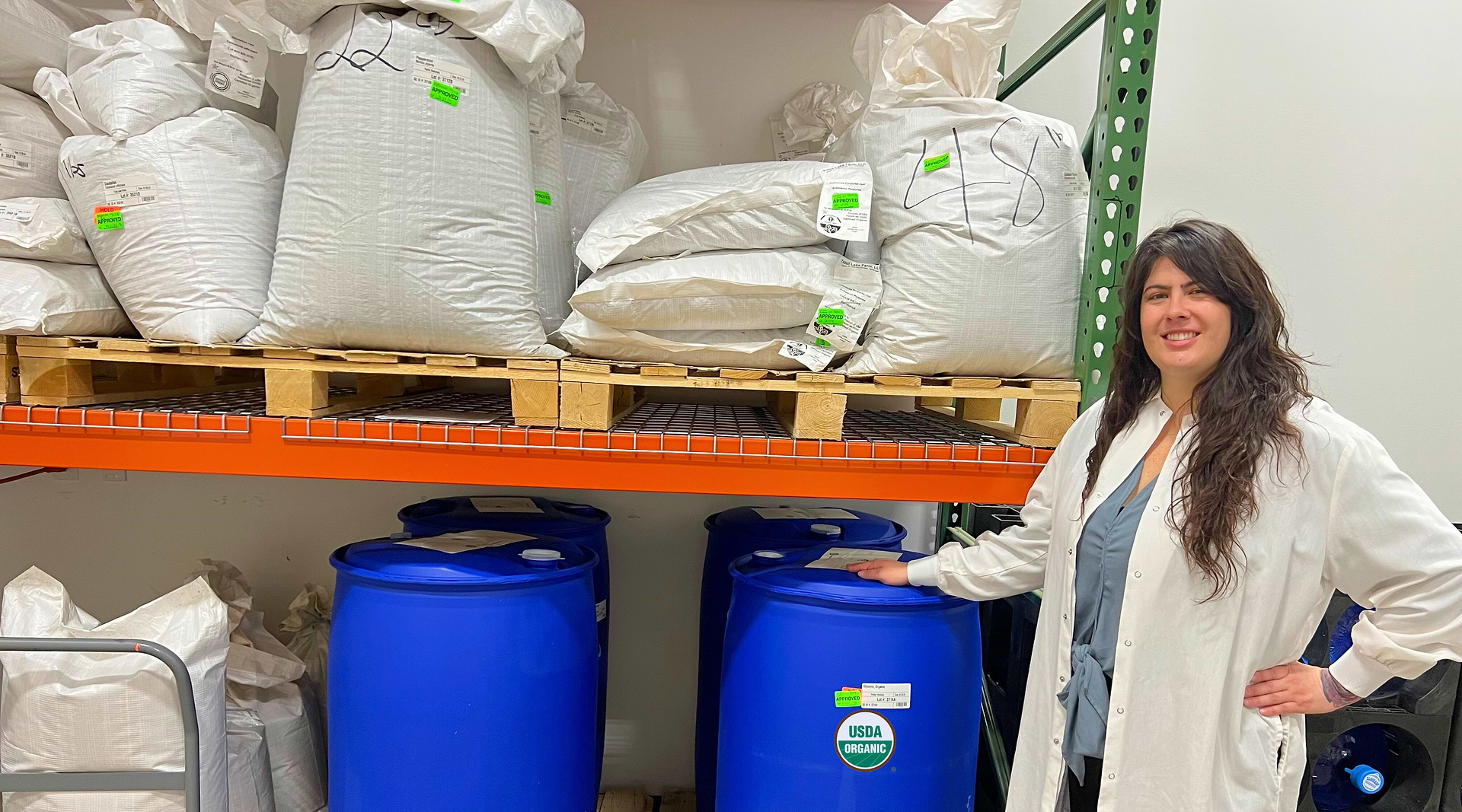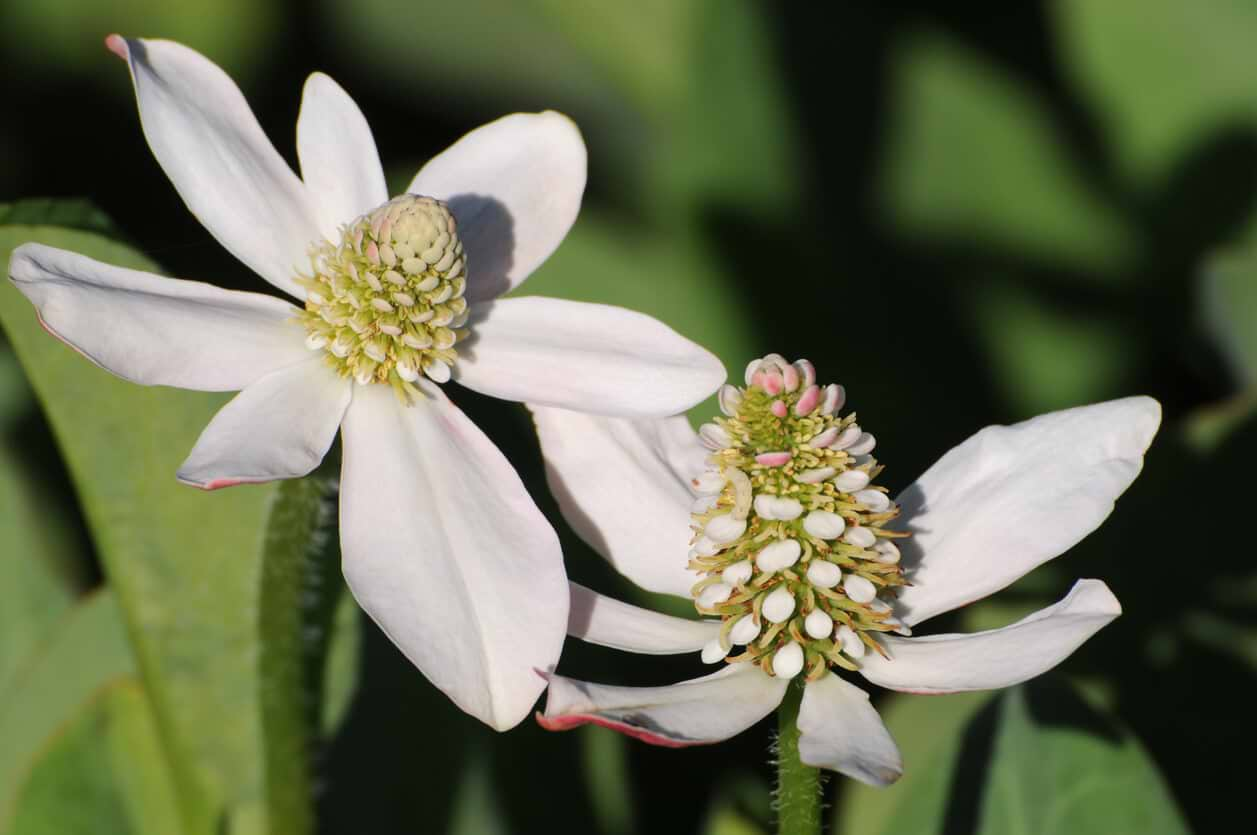In the lush heart of the Rio Grande's Cottonwood Bosque, a unique and sacred herb thrives—Yerba Mansa, also known by its botanical name, Anemopsis californica. This area, known as the Bosque, is a verdant forest nestled in the arid landscape, offering a rare biodiversity oasis. It teems with rivers, a plethora of bird species, native grasses, and an extensive array of medicinal plants that have been utilized by Native American communities for centuries. Join us in preserving Mansa's legacy, a cornerstone in Southwest Herbalism.
Historical Significance and Modern Challenges
Yerba Mansa, deeply entrenched in the cultural and medicinal tapestry of Southwest Native American tribes, such as the Apache Nation, now confronts the challenges of the modern era. The herbal sourcing landscape has been profoundly transformed by extreme climate disturbances, the tribulations & lack of domestic farming, rampant overharvesting, and a marked decline in the transmission of ancestral wisdom. These shifts jeopardize the ethical procurement of medicinal herbs, vital to our heritage and health.
Yet, there remains a beacon of hope.
Cultural Heritage and Economic Shifts
Foraging for wild herbs and foods is a practice steeped in the very essence of human tradition, particularly among the First Nations of the United States as mentioned before. It is a legacy of ethics in plant harvesting, traditionally passed down through the echoes of generations or entrusted to designated custodians of knowledge within communities. However, younger generations are increasingly drawn to urban environments in pursuit of higher income opportunities, such as working in coffee shops, rather than continuing the practice of collecting plants. This migration frays the delicate thread of continuity in our traditional plant knowledge.
It is not that elders are withholding their wisdom; rather, the scale of transmission does not meet the burgeoning demands of our natural product industry. We are called upon to raise the torch of knowledge higher, to champion the cause of ethical herb collection. Let us tread the paths of the wild, inscribe the sagas told by elders, and weave their enduring legacies into the fabric of future herbal generations.
Solutions in Ethical Sourcing
As the Sourcing & Senior Purchasing Manager for Wishgarden Herbs, I dedicate myself to pioneering solutions that address the complexities of modern medicinal plant sourcing. A cornerstone of our strategy at Wishgarden Herbs, is the meticulous documentation of elder knowledge coupled with the practice of ethical wildcrafting, a tribute to the revered wisdom of our elders.
Last September, I rallied a team comprising Lynn Quality Associate, Nathan Quality Associate, Adam Production Supervisor, and myself, under the sage guidance of Richard. As our esteemed elder wildcrafter and clinical herbalist, Richard, who is nearing a well-deserved retirement at the age of seventy, has chosen to pass his invaluable knowledge onto me.
Into the Bosque: An Ethical Wildcrafting Journey

As the early days of September unfurl their cool embrace over the New Mexico Bosque, the air, warmed by the lingering summer sun, fills our wildcrafting excursion with an unexpected warmth. This seasonal metamorphosis not only heralds a time of tangible change but also ushers in a period of renewal and profound enlightenment beneath the expansive canopy of the ancient Cottonwood Bosque.
Venturing one mile into the wild, armed with shovels, water, backpacks, harvest bags, and hearts full of noble intentions, we follow a sandy trail flanked by willow trees and towering wild sunflowers. At the trail's end, we find our cherished botanical ally, Yerba Mansa. Its intoxicating, spicy-carrot-like scent envelops me, transporting me to a sacred communion with Mansa—as if greeting an old friend who jests, "What took you so long?"
The foliage of Mansa, tinged with hues of orange and red yet hosting the last of its blooms, contrasts with the vibrant green leaves of the cottonwoods overhead, which offer a cool shelter from the intense solar rays. As Richard initiates our lesson in the delicate art of uprooting yet conscientiously replanting 40% of what we excavate, large red-winged blackbirds glide above. A gentle breeze caresses my face, carrying the rhythmic rustle of cottonwood leaves and enriching the air with Richard's sage advice.
For three decades, Richard has been the guardian of this wild sanctuary. Throughout these years, he has cultivated a practice of harvesting only what is needed and then returning or propagating the roots back to the nurturing soil. He shares, "They thrive in companionship, benefitting from the symbiotic relationships with the decomposing wood that neighbors them." Known affectionately as the Mansa Man (a name I gave him), Richard has gleaned extensive insights into the natural habitats of Mansa, knowledge that proves invaluable for stakeholders aspiring to cultivate or continue working with Yerba Mansa on a broader scale. His stewardship not only preserves but also propagates the legacy of this vital Southwestern herb, ensuring its survival and flourishing population in the heart of the Bosque.
Immersed for a week within the nurturing embrace of the Bosque, alongside Richard, we found ourselves more attuned to the earth, its flora, and the depths of our own spirits. Under his guidance, we engaged in the ancient practice of harvesting, a communion with nature that allowed us to mindfully gather the necessary bounty for our cherished formulations, Deep Lung and Get Over It. With each careful selection, rooted in good intentions, we secured our annual essentials, crafting potent remedies that promise both accessibility and healing.
Deep Roots in Herbal Expertise: The Legacy of Knowledge Keepers

Richard's Journey in Botanical Medicine
For over 40 years, the original formulation of our Deep Lung tincture has included potent herbs from the Southwest, such as Yerba Mansa. Sourced from elder herbalists like Richard, who studied at The Southwest School of Botanical Medicine under the renowned Michael Moore, Richard's dedication to clinical herbalism and ethical sourcing has been integral to his career. His commitment extends beyond personal practice to his involvement in a food co-op that features an apothecary and clinic, embodying the principles of sustainable and ethical herbal sourcing.
Catherine Hunziker's Vision for Wishgarden Herbs
Similarly, Catherine Hunziker, the President and formulator for Wishgarden Herbs, has been profoundly influenced by her studies with Michael Moore. Her extensive fieldwork and deep understanding of regional medicinal plants have shaped her approach to herbal formulation. Yerba Mansa plays a crucial role in her signature products, including Deep Lung and Get Over It, providing unique medicinal benefits unmatched by other plants. Mostly due to the resilience to growing in desert regions that create potent medicinal aromatics.
Currently, Catherine manages our regional Rocky Mountain Herbiculture receiving hub and enthusiastically motivates local farmers to cultivate rare wild plants, thereby bridging a significant botanical gap. In fact, we've successfully propagated several Yerba Mansa seedlings as part of our initiative to sustainably cultivate this enchanting plant for future needs.
Conclusion: Yerba Mansa's Ongoing Impact
As we tread softly on this sacred earth, we carry forth the legacy of Yerba Mansa, preserving its essence for the generations to come. Yerba Mansa continues to be a legacy herb for Wishgarden Herbs, representing a bridge between traditional herbal knowledge and modern herbal practices. By integrating traditional wisdom with contemporary herbal science, Wishgarden Herbs stands at the forefront of sustainable and ethical herbal sourcing, ensuring the benefits of Yerba Mansa continue to be available for future generations. This commitment underscores the importance of preserving and honoring the botanical heritage that forms the foundation of natural remedies today. We must support and elevate these custodians in ways that reinforce our herbal supply chains with integrity and respect.
Lauren Ann Nichols-Sheffler attended The Colorado School of Clinical Herbalism and received her certificate in medical herbalism. She is the owner of Blue Yarrow Herbs aka Herbal Vice, an herbal product company practicing bioregional herbalism by cultivating plants and sourcing locally. Lauren loves educating and advocating for plant sustainability. She is the sourcing and Purchasing manager for WishGarden Herbs. .
For educational purposes only. This information has not been evaluated by the Food and Drug Administration. This information is not intended to diagnose, treat, cure, or prevent any disease, or to sell any product.










